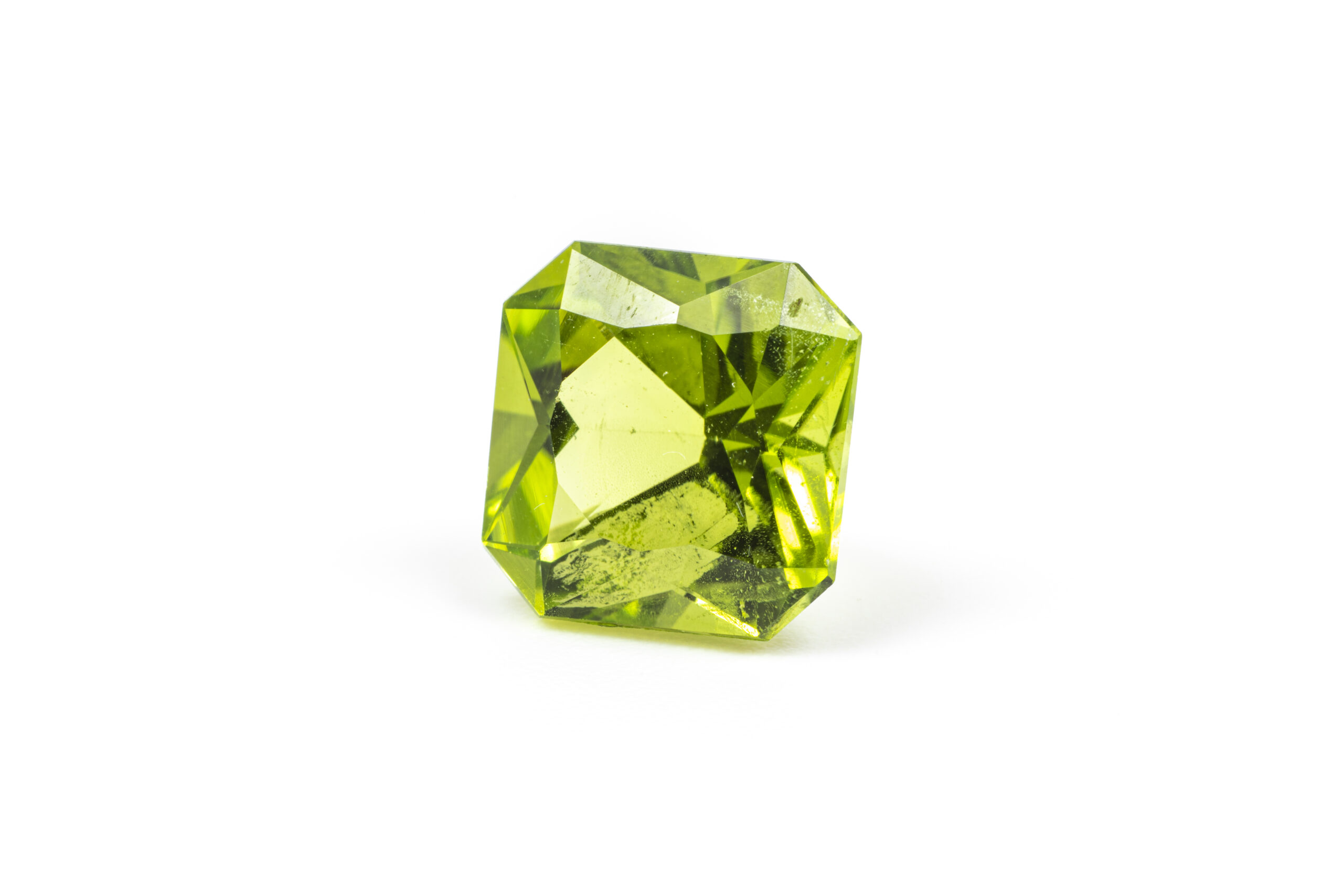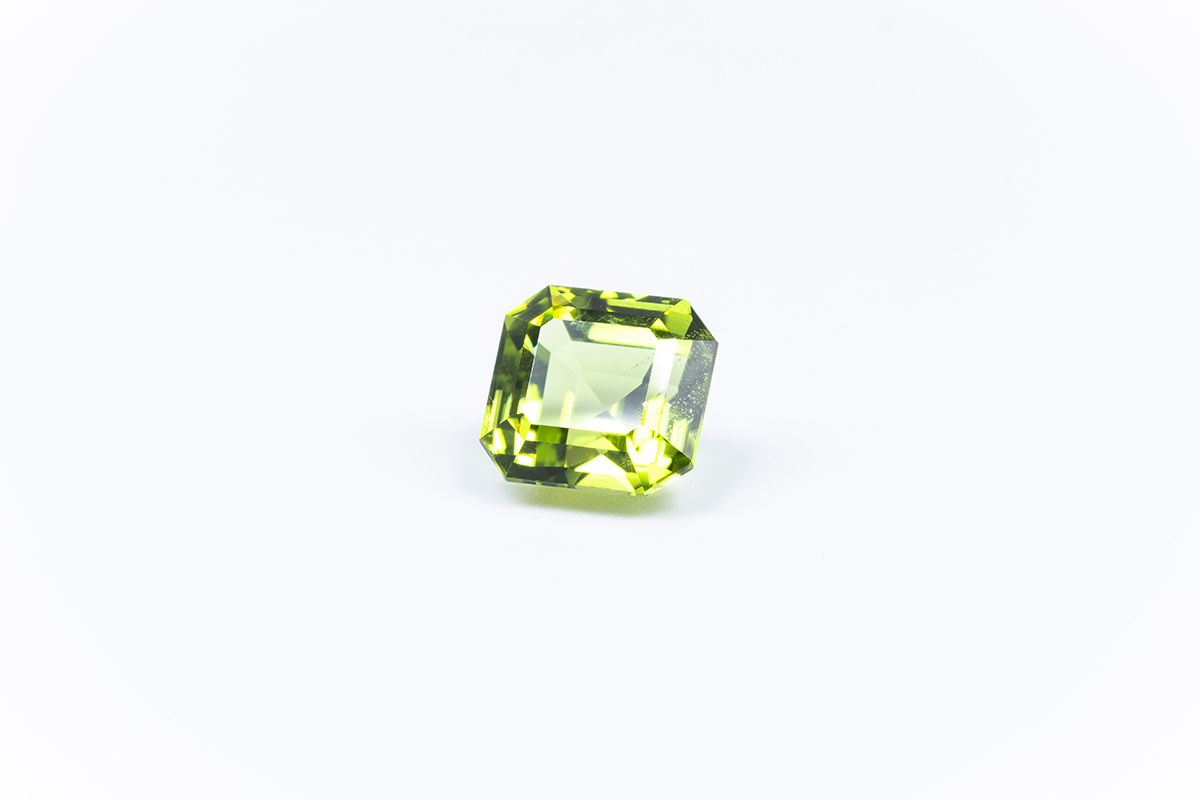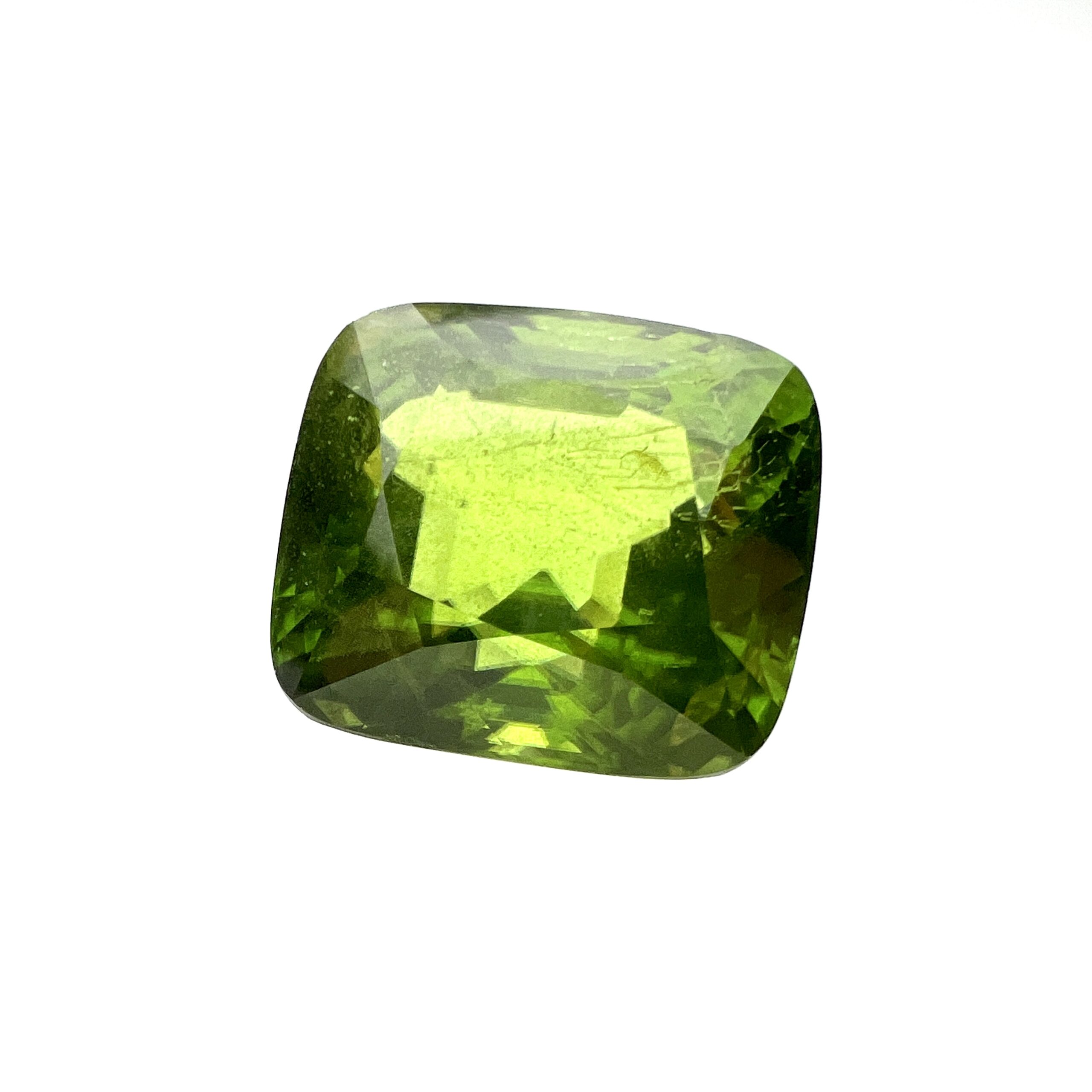Peridot
Peridot is also called chrysolite and is a particularly pure variety of olivine. It belongs to the silicates, the coloring element is iron. Unlike other gemstones, peridot occurs only in green – from a delicate light green to an intense dark green. The name "chrysolite" means “golden stone” or “golden yellow gemstone”.
Showing 33–44 of 44 results
-

Peridot
€1,600.007,325 ct. | IV/DGLA -

Peridot
€2,200.007,368 ct. | III/CGLA -

Peridot
€2,600.007,695 ct. | III/CGLA -

Peridot
€2,200.007,785 ct. | IV/CGLA -

Peridot
€1,400.008,248 ct. | III/DGLA -

Peridot
€1,800.008,317 ct. | III/DGLA -

Peridot
€1,800.008,362 ct. | IV/CGLA -

Peridot
€2,700.009,357 ct. | III/DGLA -

Peridot
€1,800.008,14 ct. | IV/CGLA -

Peridot
€500.004,061 ct. | IV/CGLA -

Peridot
€600.003,693 ct. | IV/CGLA -

Peridot
€6,500.0038,900 ct. | IV/DGLA